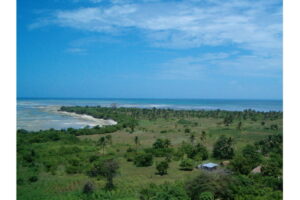Zanzibar. NMB Bank’s Chief Executive Officer, Ruth Zaipuna has said that the Bank, in partnership with the government, has financed a number of strategic sectors, including putting Sh1.6 trillion into agriculture as of last year.
Out of the funds, Sh400 billion was in the form of soft loans extended at an interest rate of nine percent in the sector Ms Zaipuna told over 500 delegates at the three-day 38th annual meeting of the Association of Local Authorities Tanzania (Alat) on April 24.
Ms Zaipuna said NMB’s engagements in national development also include corporate social investment, with at least Sh8 billion set aside for 2024.
“Of the Sh8 billion, Sh2.5 billion will be spent on building a special school in Dodoma, while the remaining amount will be invested in the priority sectors of the bank’s corporate giving policy, notably education, health, and entrepreneurship,” she explained.
Through its recently launched Nuru Yangu Scholarship and Mentorship programme, the bank has provided scholarships to 130 bright college students hailing from poor families.
Its special village banking strategy seeks to bring the unbanked segment of the population into formal banking. Through the village banking scheme, NMB targets to cover more than 1,000 villages that do not have access to formal financial services. Implementation of the strategy has included the use of the NMB Pesa Account service.
The product allows one to open an account digitally for only Sh1,000.
The product attracts no monthly charges. The account is instantly connected to NMB Mkononi, thus enabling customers to access up to Sh500,000 unsecured Mshiko Fasta digital loans without visiting an NMB branch.
“Since we officially launched it about two months ago, we have managed to open over 100,000 NMB Pesa accounts, and the target is to open over 1.5 million new accounts by the end of this year,” Ms Zaipuna pointed out.
The number of NMB Bank’s agents has increased to 34,000 across the country, compared to only 10,000 in 2021, and the target is to raise it further to 50,000 by 2026.
Ms Zaipuna lauded the government for putting in place a supportive business environment that has enabled it to continue excelling in the market, paying the rightful taxes and making mouthwatering dividend payouts to shareholders that include the government.
“It is for that reason that the Tanzania Revenue Authority has, for the last two consecutive years, recognised NMB Bank as the largest and most compliant taxpayer in the country,” she stated.
In his remarks to officiate the opening of the congress, the Minister of State in the President’s Office, Regional Administration and Local Government, Mr Mohamed Mchengerwa, called for stakeholders’ close collaboration in the fiscal space due to the pivotal role of taxes in financing development and delivering quality services.
The cabinet minister, who represented President Dr Samia Suluhu Hassan, challenged LGAs to set realistic revenue targets and employ creative measures in collecting tax income.
“Like the late Mwalimu Nyerere used to preach, revenues are the lifeblood of economies due to their decisive role in sustainable development and the delivery of services to the masses; therefore, you should ensure that they are not leaked or misused at all,” he emphasised.















